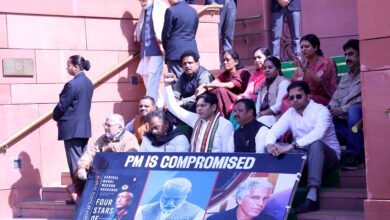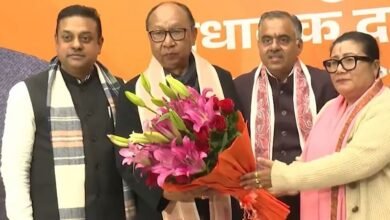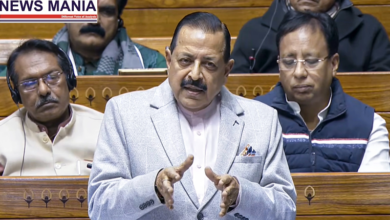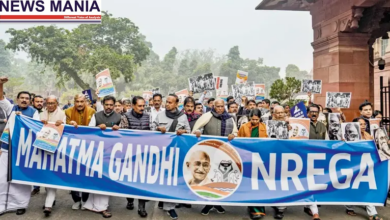Politics
CJI Chandrachud’s Last Week on the Bench: Five Significant Decisions to Be Made Before Retirement
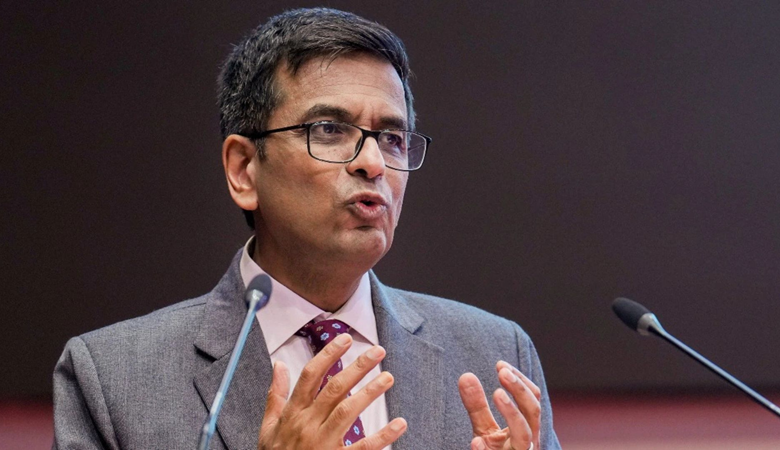
News Mania Desk / Piyal Chatterjee / 31st October 2024
On November 10, Dr. Dhananjay Yashwant Chandrachud, the Chief Justice of India, will resign, capping two years of intense, eventful leadership of the Indian court. If CJI Chandrachud’s accomplishments over the last two years are any indication, he is a man who has successfully set out on a mission to revolutionize the Indian judiciary by utilizing information technology, whether it be administrative or judicial, to make courts at all levels more inclusive, accessible, and offering a wide range of services that are focused on the needs of the public.
- MADARSA EDUCATION’S VALIDITY: October 23 is the reserved date for judgment. These are appeals brought by Muslim Madarsas against the Allahabad High Court’s decision to invalidate the Uttar Pradesh Board of Madarsa Education Act, 2004. As the hearing came to a close, the SC bench, which was presided over by CJI D Y Chandrachud, emphasized that “secularism means to live and let live,” and that it is crucial that schools accommodate a variety of religious instruction. Bench stated that although the State can create regulations to control how the madrasas operate, they cannot be wished away, adding that “in the end, we have to see it through the broad sweep of the country.” Religious training is not limited to Muslims alone.
- MINORITY STATUS FOR ALIGARH MUSLIM UNIVERSITY (AMU): The seven-judge Constitution Bench reserved its judgment on February 1 following eight days of intense hearings. A group of petitions to review the legality of the 1968 ruling by a five-judge panel that removed AMU’s minority status. Two important petitioners were AMU and the AMU Old Boy’s Association. The Supreme Court decided in the 1968 Aziz Basha case that AMU is a core university of national significance and does not belong to any particular community, rather than being a minority institution.It was created in 1920 by the British parliament, not by Muslims. The Supreme Court determined that a university cannot be designated as a minority institution once its constitution designates it as a university of national importance.The Center’s position is that AMU cannot be
- WEALTH RE-DISTRIBUTION: A nine-judge Supreme Court bench has begun interpreting Article 39(b) of the Constitution amid a political dispute over Congress’ proposal for wealth redistribution. This constitutional clause, which falls under the directive principles of state policy, is being examined to see if it gives the government the authority to transfer privately owned property in the interest of advancing the general welfare.A political dispute had been going on at the time of the hearing. This comes after Congress leader Rahul Gandhi declared that the party would carry out an institutional and financial census to determine the wealth distribution in the nation if elected to power.
- The Delhi LG’s conduct is being scrutinized in the controversy surrounding the unlawful removal of trees in the ridge region of Delhi, which is in contravention of the SC restraint order. LG V K Saxena was “unaware that prior court approval was required before felling of trees in Ridge area,” according to the affidavit he filed on the CJI Bench’s orders. The legal need was not mentioned by anyone at the site either. Additionally, DDA Vice Chairman Subhasish Panda did not commit any acts or omissions. However, SC has requested additional information in an affidavit regarding the precise moment he learned that the trees had been cut down.
- LMV LICENSE AMBIT: On August 21, judgment was reserved. The question is whether a driver with a “light motor vehicle” (LMV) driving license can operate a “transport vehicle of light motor vehicle class” with an unladen weight of no more than 7,500 kg based only on that license. The legal issue has led to a number of disagreements about insurance companies’ payment of claims in collision instances involving transport vehicles operated by individuals with LMV driving licenses. The insurance companies have been claiming that despite their reservations regarding the LMV driving license, the courts and motor accident claim tribunals (MACTs) have been issuing orders requesting that they pay insurance claims.



